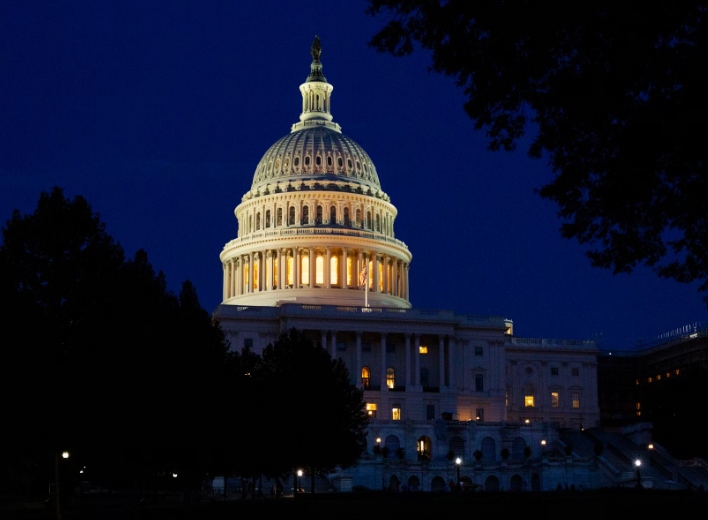
- Details
- By Levi Rickert
Late into Friday night, the U.S. Senate voted 85-11 to approve a Continuing Resolution (CR), a temporary spending bill that will fund the federal government until March 14, 2025. This vote successfully averted a government shutdown just after midnight. Earlier on Friday evening, the House of Representatives had also passed the measure overwhelmingly with a 366-34 vote.
The Continuing Resolution garnered bipartisan support in both chambers of Congress, following a tumultuous week influenced by President-elect Donald Trump and Elon Musk, who has no formal position in the government.
 Make A Donation Here
Make A Donation Here
U.S. Sen. Markwayne Mullin (R-OK), who is a citizen of the Cherokee Nation and the only current Native American serving in the Senate, voted no on the Continuing Resolution.
“I’m a no on this CR, because the Senate had every opportunity to fund the government through regular order, but instead, Majority Leader Chuck Schumer willfully abandoned his responsibility and refused to bring appropriations bills to the floor,” said Sen. Mullin.
In the House of Representatives, there are currently four American Indians and Alaska Natives: , Rep. Josh Brecheen (R-OK-2nd District), who is a tribal citizen of the Cherokee Nation; Rep. Tom Cole (R-OK-4th District), who is a tribal citizen of the Chickasaw Nation; Rep. Sharice Davids (D-KS-3rd District), who is a tribal citizen of the Ho-Chunk Nation; and Rep. Mary Sattler Peltola (D-AK-At-Large), who is a member of the Yup’ik community.
Those Native members of Congress who voted yes on keeping the government open were: Cole, Davids, and Peltola. Cole, the longest-serving Native American in Congress, chairs the powerful House Appropiations Committee. Since Peltola, the first Alaska Native to serve in Congress, lost her reelection bid, this vote is one of last votes as a member of Congress.
“While a continuing resolution is not ideal, this strategy ensures President Trump has a voice in shaping the final FY25 bills. Importantly, it averts a costly government shutdown that would only serve to handcuff the start of his new administration," Cole said in a statement released after the vote.
Breecheen voted no on the measure.
Had the shutdown occured, more than three million Americans, including more than a million active duty service members, would miss their paychecks over the holidays. Holiday travel would have been disrupted during the busiest week of the year, leaving Americans with longer wait times at airports. A government shutdown could have cost taxpayers and the economy billions of dollars.
Neely Bardwell contributed to this article.
More Stories Like This
Native News Weekly (August 25, 2024): D.C. BriefsUS Presidents in Their Own Words Concerning American Indians
Federal Judge Orders ICE to Halt Use of Pepper Spray, Arrests of Peaceful Protesters in Twin Cities
Tunica-Biloxi Cultural Leader John D. Barbry Walks On
Next on Native Bidaské: Federal ICE Activity in Minneapolis: Ruth Buffalo’s Perspective
Help us defend tribal sovereignty.
At Native News Online, our mission is rooted in telling the stories that strengthen sovereignty and uplift Indigenous voices — not just at year’s end, but every single day.
Because of your generosity last year, we were able to keep our reporters on the ground in tribal communities, at national gatherings and in the halls of Congress — covering the issues that matter most to Indian Country: sovereignty, culture, education, health and economic opportunity.
That support sustained us through a tough year in 2025. Now, as we look to the year ahead, we need your help right now to ensure warrior journalism remains strong — reporting that defends tribal sovereignty, amplifies Native truth, and holds power accountable.
 The stakes couldn't be higher. Your support keeps Native voices heard, Native stories told and Native sovereignty defended.
The stakes couldn't be higher. Your support keeps Native voices heard, Native stories told and Native sovereignty defended.
Stand with Warrior Journalism today.
Levi Rickert (Potawatomi), Editor & Publisher

